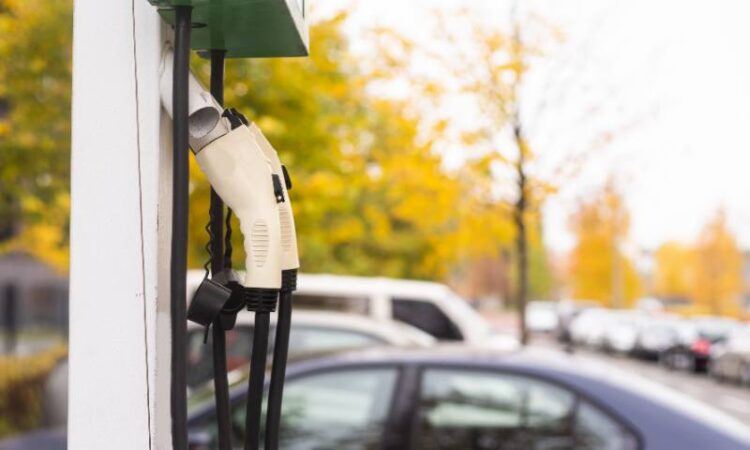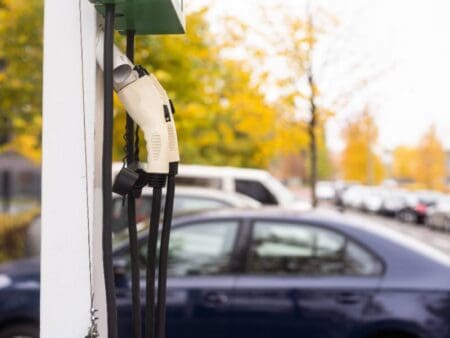

Image courtesy 123rf
The UK Government has announced funding support for bidirectional electric vehicle charging in the hopes of developing vehicle to everything (V2X) capability.
V2X allows users to leverage EV-stored excess electricity in the vehicle’s battery to power home appliances, such as fridges and washing machines, or flow back into the power grid for stability.
This builds on existing smart charging technologies, where EVs can be charged when electricity prices are lower overnight.
Customers could then use these V2X technologies to save money on their bills by selling the electricity back to the grid when prices are higher.
Have you read:
Kaluza & Ovo Energy tap Volvo for vehicle to everything tech
SDG&E and Toyota to collaborate on vehicle to grid technology
Specifically, four projects have received a share of £4.8 million ($6 million) of government funding to support their work testing and implementing these innovative technologies, including:
- Hangar19 Ltd in Chelmsford, to demonstrate a 3-socket bidirectional charger, making a wider range of EVs available for energy flexibility and bidirectional charging;
- 3ti Energy Hubs Ltd in Leatherhead, to combine a quick-to-deploy bidirectional charging hub with a solar canopy and energy storage battery, housed in recycled shipping containers, which can make access to bidirectional charging available in more destinations, including vehicle depots;
- Otaski Energy Solutions Ltd in Gateshead, to trial its bidirectional EV charger to enable fleet EV operators to access energy in a flexible way which could deliver savings in line with electricity supply and demand surges; and
- Electric Green Limited in London, who will work with QEnergy to trial wireless V2X technology with a fleet of 20 delivery vehicles at Royal Mail.
In a release, the UK Government cites how businesses could also benefit from the V2X technologies by storing electricity in their fleets of EVs and using it to power their operations at a later date.
These technologies will also help make it even easier to rely on renewable technologies such as solar panels, with less need for fossil fuels to provide for surges in demand by allowing stored renewable energy to be sold into the grid instead.
Transport minister for Technology and Decarbonisation Anthony Browne said in a release: “We’re continuing to support drivers and this innovative new development is the next step in levelling-up our charging technology, which will benefit many households across the country.
“This government has already spent over £2 billion ($2.5 billion) in the transition to electric vehicles and our charging network is growing at pace, with 44% more public chargepoints than this time last year, meaning drivers can charge more easily than before.”
The funding builds on existing government funding for EV charging, such as a £70 million ($89 million) pilot scheme, announced at COP28 in Dubai. This will also boost the number of ultra-rapid charge points at motorway services.
The UK has also committed to ending the sale of all new non-zero emission vehicles by 2035 to support the delivery of net zero.
The programme is part of the overarching Flexibility Innovation Programme, supporting the efficient and flexible use of electricity, within the Department for Energy Security and Net Zero’s £1 billion ($1.3 billion) Net Zero Innovation Portfolio.






